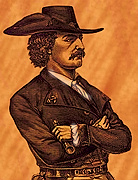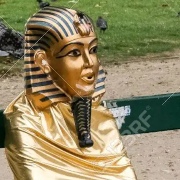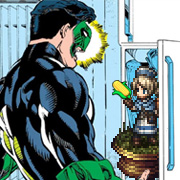|
I'll just read whatever the gently caress. Then I gripe.
|
|
|
|

|
| # ? Apr 27, 2024 09:40 |
|
PeterWeller posted:Yes. See, for example: These both read like elaborate post-hoc justifications of what the novel was and not what the novel could be to a reader. And they're certainly not written well enough to draw me in. "the entire theme of Honda's life lies in his inability to square the circle of a fundamentally spiritual, aesthetic, artistic gnawing in his soul that he sees reflected in the world in the form of Kioyaki and his various incarnations, and his rationalist, pragmatic worldview." lol I don't find either examination interesting. If you don't find mine... "I read Beckett because his ideas of modernism and post-modernism appealed to me as ideas of the self did. Delueze and Guatarri appealled to me about ideas of thinking, and post-structuralism, something this thread was very strong on for a while. I read Heidegger because ideas of phemonenology appealed to me. I read Fosse because thoughts on Catholicism, isolation and alcoholism appealled to me." That's fine too. But it seems to me you're trying to justify "the fascist author" which someone blunders in here every so often to bring up by people just not being interested in his work. 3D Megadoodoo posted:I'll just read whatever the gently caress. Then I gripe. Yeah, man. Fair enough. I'm selective in what I read. As I said it addresses "a need."
|
|
|
|
Mishima could see certain things about people very well, but not others. And as said previously he had a good deal of awareness about this fact but not how to break out of it. This got worse with him finding a "solution" in fascism, which was also synonymous with homosexuality and suicidality in him, and was obviously related to how he was wounded in life. Which is why that element of him is still interesting, if obviously wrong and abhorrent. Imo he was at his best when he was seeing the horizons of his world and the weakness in himself and those around him, without filtering that through a totalizing value system as much as he did later. That being said, I'm not a big lover of Mishima because I find the things outside of his limitations more interesting than those within.
|
|
|
|
im balking at someone reading soseki and going "well thats a wrap for japan lit" if i understood that earlier. kokoro is amazing but come on lol
|
|
|
|
You at least need some Murakami to grasp how far the art has fallen off since.
|
|
|
|
cumpantry posted:im balking at someone reading soseki and going "well thats a wrap for japan lit" if i understood that earlier. kokoro is amazing but come on lol No-one's every interested me in more. Certainly not this thread and Mishima.
|
|
|
|
Gaius Marius posted:You at least need some Murakami to grasp how far the art has fallen off since. LOL... but also
|
|
|
|
I've only read half of one of Mishima's books and it's not even translated by like a renowned translator and I think the prose is very engaging. There's a yearning for meaning in his protagonist and a death fixation that both resonate with me as themes. I think a lot more has been said about him than just he was gay and he killed himself and to disregard all that says more about you than it does about Mishima. But yeah life is short and you should only read what you wanna read. We might tease you a lil bit, that's all.
|
|
|
|
Segue posted:To counterpoint myself, I can see interest in Mishima if you are interested in that very aesthetic depiction of a yearning for tradition, a fetishized masculinity, a really idolizing/hatred of women, and a man very publicly laying out his own issues through at times pathetic protagonists. It could be psychologically fascinating. All of which echo a lot in Japan which still has incredible conservative and gender issues. That is not even kind of what Mishima's fiction is about. You are convinced that his writing is something it isn't. Very little of his fiction (at least what I've read) is fascist or even especially political -- the major exception being Runaway Horses since the protagonist is a student who is an aspiring right-wing revolutionary, and even then the narrative is about him as a person and not a political essay. The other main character (and the one around whom the tetralogy comes to focus) is Honda, who is really more like a Westernized liberal, and who admires Isao's youth and doomed passion and romance, and sees in him that same ineffable ethereal beauty that he sees in the ephemeral cherry blossom or the spring snow that is beautiful but destined to melt, the same thing that attracted him to Kioyaki. The politics of Isao and his revolutionary aspirations are more romantic than prescriptive -- his efforts are stifled, and his singular anti-capitalist act of violence at the end of the novel is a dramatic, but ultimately petty, victory. Confessions of a Mask is the one that is implicitly autobiographical, and even that isn't super political, but is very intimate, psychological (or psychosexual) and very dark. quote:That being said, recognizing that that sort of depiction is inextricably tied to and has been repeatedly used for horrific political and sexual violence including the dangerously revanchist politics today, means hey it's up to you. You have no idea what you're even arguing about. Recognizing it is meaningless. I recognize it. So what? What is the next step from that? Is it praxis if I am sufficiently disgusted? quote:(Yes this sort of reading can be used to criticize leftist works linked to violence, which I would argue could potentially be more interesting than Mishima, though probably less aesthetically beautiful. He is a great writer.) Don't claim it's beautiful or that he's a great writer if you haven't read the loving writing!
|
|
|
|
The Coca Cola machine Honda sees at the shrine is one of the saddest moments I've ever read. All at once it comes to the fore how much was lost in Japan. Honda, his companion, and every other citizen are tourists in their own country.
|
|
|
|
apophenium posted:There's a yearning for meaning in his protagonist and a death fixation that both resonate with me as themes. Yeah, you see this is interesting. edit: Gaius Marius posted:The Coca Cola machine Honda sees at the shrine is one of the saddest moments I've ever read. All at once it comes to the fore how much was lost in Japan. Honda, his companion, and every other citizen are tourists in their own country. This is cool too. Heath posted:very little of his fiction (at least what I've read) is fascist or even especially political -- the major exception being Runaway Horses since the protagonist is a student who is an aspiring right-wing revolutionary, and even then the narrative is about him as a person and not a political essay. The other main character (and the one around whom the tetralogy comes to focus) is Honda, who is really more like a Westernized liberal, and who admires Isao's youth and doomed passion and romance, and sees in him that same ineffable ethereal beauty that he sees in the ephemeral cherry blossom or the spring snow that is beautiful but destined to melt, the same thing that attracted him to Kioyaki. The politics of Isao and his revolutionary aspirations are more romantic than prescriptive -- his efforts are stifled, and his singular anti-capitalist act of violence at the end of the novel is a dramatic, but ultimately petty, victory. This isn't. I recognise Heath is arguing to people who've read Mishima, though. Not people who haven't. I think Segue has read Mishima, though. Mrenda fucked around with this message at 21:09 on Mar 20, 2024 |
|
|
|
Do you want to elaborate on why you don't find any of it interesting or are you just Mrenda posted:"the entire theme of Honda's life lies in his inability to square the circle of a fundamentally spiritual, aesthetic, artistic gnawing in his soul that he sees reflected in the world in the form of Kioyaki and his various incarnations, and his rationalist, pragmatic worldview." going to post poo poo like this and go "it appealed to me." Why did it appeal to you. What need are you fulfilling. Like I'm not sure how to communicate to you because your responses are either completely flippant and barren or you say poo poo like "his thoughts appealed to me," which may as well be a response you give to someone asking you why green is your favorite color.
|
|
|
|
Mrenda posted:These both read like elaborate post-hoc justifications of what the novel was and not what the novel could be to a reader. And they're certainly not written well enough to draw me in. You asked, "Has anyone said anything interesting other than "lol dude! he gay and stabbed heself!" That implies either that you feel "lol dude! he gay and stabbed heself" interesting, which doesn't reflect well on you, or that you were suggesting the entire discourse around Mishima in this thread is, "lol dude! he gay and stabbed heself," which is obviously the point you were trying to make. I gave you just two of the most recent examples of other things people have said about Mishima. Now you're gonna cop out on your own point and say you don't find those posts interesting, which is fine, but then brings us back to the other reading of your own post, which I have already quoted twice. Also, consider for a moment that "elaborate post-hoc justifications of what the novel was" are people telling you what the novel had become for them and could be for you. quote:If you don't find mine... How can I find your examination interesting when it's not even an examination? You don't say anything about what they said about modernism or post-structuralism or phenomenology, etc. You just say they write about those topics and that interests you. Good on you I guess for reading the Nazi's favorite pet philosopher for the same drat reason everyone else taking Intro to Continental Philosophy does.
|
|
|
|
Heath posted:You have no idea what you're even arguing about. Recognizing it is meaningless. I recognize it. So what? What is the next step from that? Is it praxis if I am sufficiently disgusted? I'm going to respond because I'm going off my own interpretations of two of his works which I've read. Can you accept that my interpretation is different than yours and I'm not simply acting in bad faith? Neither is political in the sense of joining a right wing revolutionary movement, as you said, but both protagonists have an obsession with aesthetics and violence. Golden Pavilion has its stuttering protagonist set fire to the beautiful golden temple in his obsession with glorious death, which in the end he rejects. He both longs for and hates this idealization and seeks to both destroy and link himself to it. Mishima's own aestheticized and useless death calling for a greater order to Japan, I think this struggle for redemption and transcendence through a violent act, as well as an obsession with idealized form has strong parallels to a lot of reactionary culture, including parallels in incel culture. Sailor Who Fell from Grace has erotic longings for the protagonist's mother as well as a strong longing for the toxic masculinity the sailor represents. I'm sure psychologists would have a field day with it, but again this obsessed and lonely protagonist searching through violence and possession to claim things I don't find interesting and I find troubling too. The sections about the pull of the sea are wonderfully evocative, though. Yes these could be argued as apolitical and personal studies of psychology, but I think given Mishima's life and own obsessions, I found the parallels strong. I also found the individual psychology of the protagonists uninteresting, much in the same way I find the navel-gazing bored rich protagonists of modern MFA books uninteresting, though that's more a reflection of atomization and anomie than yearnings for revenge and violence I get through Mishima. To your first question, how is this praxis to be disgusted. It's not? I find other books I don't care for, from Ottesha Moshfegh's ugly unlikeable people or Hanya Yanigahara's torture porn A Little Life, I won't engage because I find them thematically uninteresting or gross. Some people may get more out of it by I have not. I'm glad you have.
|
|
|
|
Frankly, if you don'tt feel the same way as I do about everything, ooh wee I'm gonna be mad!
|
|
|
|
Just read these good Mishima lines five minutes ago “Internal existence is life, objective existence is nothing but death…” “The artistic work…was a kind of refined death. It had a peculiar power to permit life to touch and experience death in advance.” I literally got Forbidden Colors in my hand as I post ITT.
|
|
|
|
I read books to make me feel things and think about things. Sometimes I read a book that makes me feel and think cool and good things and that's cool. Sometimes I read a book that make me feel and think bad and gross things and that's cool too. A really cool book will do both
|
|
|
|
Heath posted:Do you want to elaborate on why you don't find any of it interesting or are you just Probably because I haven't examined myself to such a deep meaningless core where looking at the nth dimension of who I am or what I'm interested in is borderline indistinguishable from the next. Why did Beckett appeal to me? Probably because he was a Nobel winner, he fled Ireland, he dealt with philosophy, he dealt with absurdism, he dealt with madness. I read Murphy, it was good. I read more. I'm saying why something interests me for pure base reasons. Nothing more. apophenium explained why she (I think? apologies if wrong) found Mishima interesting. I'm taking about interest, not examining their writing. Nothing more. Pure reason of why you'd find something interesting. PeterWeller posted:You asked, "Has anyone said anything interesting other than "lol dude! he gay and stabbed heself!" That implies either that you feel "lol dude! he gay and stabbed heself" interesting, which doesn't reflect well on you, or that you were suggesting the entire discourse around Mishima in this thread is, "lol dude! he gay and stabbed heself," which is obviously the point you were trying to make. I gave you just two of the most recent examples of other things people have said about Mishima. Now you're gonna cop out on your own point and say you don't find those posts interesting, which is fine, but then brings us back to the other reading of your own post, which I have already quoted twice. I got the impression that a large part of this thread was people dunking on simplistic readers having issues with Mishima and other authors for their politics and not their art. As for what "what the novel had become for them" it doesn't hit any part of the brain, for me, of what the novel "could become, for me." But as you say that "is fine." If you're bigging up a book doesn't interest me that "is fine." quote:How can I find your examination interesting when it's not even an examination? You don't say anything about what they said about modernism or post-structuralism or phenomenology, etc. You just say they write about those topics and that interests you. Good on you I guess for reading the Nazi's favorite pet philosopher for the same drat reason everyone else taking Intro to Continental Philosophy does. loving weird you bring up the "Nazi's favorite pet philosopher" as a quote, when we're discussing Mishima. Is that irony? I thought him interesting as one of the foundations of phenomenology, which is a philosophy I most believe in for now. If you have anything that addresses that (phenomnology) I'd be interested.
|
|
|
|
fridge corn posted:I read books to make me feel things and think about things. Sometimes I read a book that makes me feel and think cool and good things and that's cool. Sometimes I read a book that make me feel and think bad and gross things and that's cool too. Jealous of someone who can feel and think things at the same time. Especially if it's more feeling and thinking than "Ooh yeah." Or "Oooh nooo...!" Or "..."
|
|
|
|
Segue posted:I'm going to respond because I'm going off my own interpretations of two of his works which I've read. Can you accept that my interpretation is different than yours and I'm not simply acting in bad faith? well, you read it and didnt like it. cant argue with that. you even read TWO just to be sure. definitely cant fault that. not everyone can like everything, or else what would be the point of art
|
|
|
|
Mrenda posted:Jealous of someone who can feel and think things at the same time. Especially if it's more feeling and thinking than "Ooh yeah." Or "Oooh nooo...!" Or "..." 
|
|
|
Mrenda posted:Jealous of someone who can feel and think things at the same time. Especially if it's more feeling and thinking than "Ooh yeah." Or "Oooh nooo...!" Or "..." Forgive me for saying this, but your subjective experience seems to potentially be quite a bit different in many ways from the subjective experiences of many other posters, which is of course why dogpiles like this will inevitably happen. Phenomenology fans should know this better than most.
|
|
|
|
|
Mrenda posted:Probably because I haven't examined myself to such a deep meaningless core where looking at the nth dimension of who I am or what I'm interested in is borderline indistinguishable from the next. What in the actual gently caress does this mean. I feel like I'm stroking out trying to decipher your reasoning. The whole thing about good literature is that it can make you ask, and to a lesser degree answer, things about yourself, which is a thing you seem either unwilling or incapable of doing beyond "base reasons." I can't proceed with that because there is nothing I can say to you that is going to connect since it is clear we are in very different zip codes on that front. I don't know why it is incumbent upon me to sell Mishima to you personally or why it is necessary to explain what any particular work "could be to you" because I don't know you from Adam and, frankly, you seem like you made up your mind about him well before this discussion ever even started and it sure seems like you're trying to bait me into defending some kind of fascist sentiment of Mishima so that you can do the goon thing of being like "Aha, see fellows, he's a chud after all" The silliest thing about this discussion, whenever it comes up on the forums, is that when someone pops up to be like  "Well I certainly won't read a fascist author like Mishima" to try to bait out reasons to call someone a chud you inevitably get at least a couple people who read the responses and go "thanks to this discussion I've been convinced to read Mishima, where should I start?" Congratulations you dumb fucker, you've just created six new Nazis on our very own forum! "Well I certainly won't read a fascist author like Mishima" to try to bait out reasons to call someone a chud you inevitably get at least a couple people who read the responses and go "thanks to this discussion I've been convinced to read Mishima, where should I start?" Congratulations you dumb fucker, you've just created six new Nazis on our very own forum! [QuoteWhy did Beckett appeal to me? Probably because he was a Nobel winner, he fled Ireland, he dealt with philosophy, he dealt with absurdism, he dealt with madness. I read Murphy, it was good. I read more.[/quote] This is making me insane. You must have something in your brain that can explain why a particular thing appeals to you. A specific scene or a theme you can relate to yourself as a person and not just... "he dealt with absurdism, he dealt with madness." What about absurdism? What about madness? Why does it matter to you to read these topics in prose? quote:I'm taking about interest, not examining their writing. Nothing more. Pure reason of why you'd find something interesting. Not examining their writing?? We're talking about writers!! quote:I got the impression that a large part of this thread was people dunking on simplistic readers having issues with Mishima and other authors for their politics and not their art. Because that's literally what happens all the time!! Every single time Mishima comes up someone pops up and goes "I won't read a fascist!!" There is no way to interpret that sentiment besides the person saying they 1.) haven't read it and B.) won't because of the author's politics! And then they get pushed back on by people who have read it and it turns into this same circular bullshit.
|
|
|
|
Heath posted:
The funny part about this is I think I had originally dismissed Mishima and decided to read him because people advocated for his work as separate from his politics, or an interesting view into them and psychology. So I did and I didn't like him, huh. I have been on a bad run of books recently, but I quite like Morrison's Sula even if it jumps time too much. I'd love for it to be more long and exalting, really dive into that place and those people. Still incredibly effective. Maybe I should dive back into some Krazhnahorkai if I want some well-done misery.
|
|
|
|
Mrenda posted:loving weird you bring up the "Nazi's favorite pet philosopher" as a quote, when we're discussing Mishima. Is that irony? I thought him interesting as one of the foundations of phenomenology, which is a philosophy I most believe in for now. What quote? I called him that. And it's true. I was making a joke that in a conversation that began whether or not one should read a fascist artist, you brought up a literal card-carrying Nazi. And yes, I know you haven't argued against reading Mishima on the grounds of being a fascist. The closest you've come is making fun of people who read him to understand the mentality of a fascist. But why should I begin the conversation about phenomenology? You're the one who believes in it and finds it interesting. I'm the one who thinks Heidegger is a vile sellout who even if you disregard his complicity in crimes against humanity, you still have to consider how he sullied his conceptual legacy by writing agrarian nonsense that would make even Robert Penn Warren roll his eyes. That said, I'll still try: I am fascinated by the relationships between narrative, space, and time, so I touch on phenomenology from time to time in my reading. (I'm actually much more well read when it comes to Modernism because of the ways modernity alters our perceptions of space and time, so I guess I should've made a bad joke about Beckett, but oh well). Anyway, I recently read Mark Currie's The Unexpected: Narrative Temporality and the Philosophy of Surprise, which take a phenomenological approach to questions about temporality and narrative. He argues that fiction creates a future that has already occurred and that the phenomenon of narrative is one of anticipated surprise--when you're reading, you're closing a temporal gap between yourself in your lived present and that future, that has already occurred, but is also becoming the narrative present that runs concurrently with your lived present. The entire time this process is going on, you know that future has already been written and you could just flip forward and make it the narrative present, but you don't because you want to experience the process of anticipating that future from the details presented in the text. He further argues that this process is essentially the process by which we use retrospective narrative to make sense of our own lived experiences. We can't anticipate the real surprises in our human lives, but we can retrospectively see the signs by which we could have anticipated them had we known they were coming, and we use narrative to make sense of that. Anyway, it was a cool book that illustrates what I like and don't like about phenomenology. I like that Currie points to an interesting paradox in the experience of narrative, and while he's hardly the first person to argue that we use narrative to make sense of our existence, I like that he describes an actual process by which we do so. But I don't like that he makes those arguments pretty succinctly and then kinda just repeats them over and over again from different perspectives, which happens a lot in the phenomenology I've read and strikes me as interesting but mostly unnecessary padding. I also just don't feel like it, and most phenomenology really, justifies the -ology. It's just not what I think of as a systematic study. Currie brings up Todorov and his "Typology of Detective Fiction" a number of times, and I think that sort of structuralist work much better exemplifies what an -ology is.
|
|
|
|
Edit: ^^^ this is a really good post ^^^ The thing is that Mishima saw and experienced the world in a way that made him miserable, and he absolutely knew why it made him miserable, but could not take the next few steps to find his way toward some kind of absolution. "Okay, I hate myself and I suck. Is there anything I can do to change that? I know I'm not going to be able to think my way out of it, any more than I thought my way into it." There is value in the expression of that interior life, even when its exterior life is painful and maladaptive and dangerous.
|
|
|
|
|
for me its very simple: i like books that make me feel weird and uneasy. i like books that are very beautiful. mishima's novels are both turned up to 11
|
|
|
|
Segue posted:Maybe I should dive back into some Krazhnahorkai if I want some well-done misery. Or you could read Seiobo which is the opposite of misery!
|
|
|
|
Segue posted:Yes I can, absolutely! I just don't find that dumbness interesting enough for me to want to continue engaging with it. Mel Mudkiper posted:So I guess you ain't no Houellebecq girl
|
|
|
|
my finest hour
|
|
|
|
Segue posted:Good or bad? I've been meaning to read a collection of his works for a while. He rules
|
|
|
|
Are all of Pynchon’s books full of characters with ridiculous Dickensian names?
|
|
|
|
Yes
|
|
|
|
Profane and Stencil are pretty cool names
|
|
|
|
Big fan of Al Maur-Faud
|
|
|
|
i pre-hoc justify reading books
|
|
|
|
I tik-toc justify reading books #romantasy #enemiestolovers #mishima #booktok
|
|
|
Gaius Marius posted:You at least need some Murakami to grasp how far the art has fallen off since. Evergreen: Big Anime Fan Here posted:Haruki Murakami: "Transparency Goat Hotel Story"- when middle aged writer Maruki Hurakami's cat gets lost inside a description of what al dente pasta means, it's up to some women who curiously want to have sex with him, as well as a sexy lolita who he is just friends with, no big deal, to solve the case of which band from the 70s stole all the Cutty Sark off a secret truck from another dimension. (Nominated for the 2015 Nobel Prize in literature)
|
|
|
|
|
I'll read some Ishiguro, I think that'll be enough of Japanese lit for me.
|
|
|
|

|
| # ? Apr 27, 2024 09:40 |
|
I personally approach my reading more from the position of Felski and Nussbaum, but I really like the point about the temporal gap that you referred to. it’s a good attempt at describing the why in why we read and become engaged
|
|
|




























